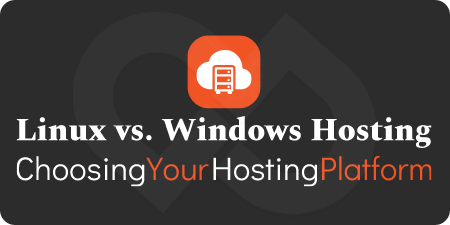Unlimited Traffic Servers
By Kevin Williams / Dec, 1

When it comes to choosing a hosting plan for your website, one of the major decisions you’ll make is whether to opt for Linux or Windows hosting. Both operating systems have their own unique advantages and drawbacks.
In this article, we’ll dive into the key differences between Linux and Windows hosting environments to help you make an informed choice.
The primary distinction between Linux and Windows hosting lies in their software nature. Linux is an open-source operating system, meaning it is free and publicly accessible for users to modify and distribute. This has led to a vast community of developers and a plethora of distributions, each catering to specific needs.
On the other hand, Windows is a proprietary operating system owned by Microsoft. Users must purchase a license to use it, and its code is not openly accessible. This means that Microsoft controls the development and distribution of Windows, which can impact the flexibility and customization options available to users.
Linux hosting is generally more affordable than its Windows counterpart, primarily due to its open-source nature. As there is no need to purchase licenses for Linux, hosting providers can pass those savings onto their customers.
Windows hosting, however, requires a paid license for the Windows Server operating system. This added cost is usually reflected in the pricing of Windows hosting plans.
DataPacket has gone the extra mile to level the playing field by offering Linux and Windows hosting plans at the same cost. Despite Windows hosting being inherently more expensive to run and support, our customers can choose the platform that best suits their needs without being influenced by price.
Linux is renowned for its performance and stability. Its lightweight nature allows it to run efficiently on servers, using fewer resources compared to Windows. This can result in faster page load times and a smoother experience for website visitors. Additionally, Linux servers are less prone to crashes and require less frequent reboots, ensuring more reliable uptime.
Windows servers, while still powerful and efficient, may require more resources to function at their full capacity. This can affect the performance of your website, especially if the server is running multiple Windows-based applications simultaneously. However, Windows Server has improved significantly over the years, and performance gaps have narrowed.
Linux is often considered more secure than Windows due to its open-source nature and vast community of developers. The Linux community actively addresses security vulnerabilities and releases patches in a timely manner. Additionally, Linux’s file permission and ownership system provide an extra layer of security, reducing the risk of unauthorized access.
Windows has made significant strides in improving its security features, but it remains a popular target for hackers due to its large user base. While Microsoft does release security patches, these updates can sometimes lag behind the discovery of vulnerabilities.
Linux hosting is the preferred choice for websites built using open-source technologies such as PHP, MySQL, and Apache. Content management systems like WordPress, Drupal, and Joomla also run seamlessly on Linux servers.
Windows hosting is necessary if your website relies on Microsoft technologies like ASP.NET, MSSQL, or Microsoft Access. In addition, if you plan to use Microsoft-specific applications or tools, such as Visual Studio, Management Studio or Web Deploy, and want seamless integration, Windows hosting is the only viable option.
Linux hosting typically comes with the cPanel or Plesk control panels, which offer a user-friendly interface for managing your website and server. These control panels are widely used and supported by a large community, making it easy to find tutorials and guides.
Windows hosting usually features the Plesk control panel, which also supports Linux. Plesk has a Windows-specific interface that integrates seamlessly with Microsoft applications and services. Both cPanel and Plesk offer a wide range of features and tools for managing your hosting environment, so the choice between them comes down to personal preference and familiarity.
DataPacket’s versatile Plesk hosting plans support both Linux and Windows environments, providing a seamless and user-friendly experience regardless of your chosen platform.
Linux hosting offers greater scalability and flexibility due to its open-source nature and support for a wide range of applications. This makes it easier to expand your website as it grows, add new features, or switch to a different hosting provider if needed.
Windows hosting can also be scalable, but it may be limited by its dependency on Microsoft technologies. If your website relies heavily on Microsoft applications or services, you may find it more challenging to scale or migrate to Linux hosting.
Conclusion
Choosing between Linux and Windows hosting ultimately depends on your website’s specific requirements, your budget, and your familiarity with each operating system. If your website relies on open-source technologies or you prefer a cost-effective, stable, and flexible solution, Linux hosting is likely the better option. However, if your website requires Microsoft technologies or you’re more comfortable working in a Windows environment, Windows hosting is the way to go.
No matter which hosting environment you choose, DataPacket offers robust security features, reliable uptime, and excellent customer support to help you get the most out of your hosting experience.
Kevin holds a Senior Tech position at DataPacket, where he excels as both a web developer and graphic designer. With his expertise in technical support, he consistently goes above and beyond, surpassing the expectations of clients and colleagues alike.